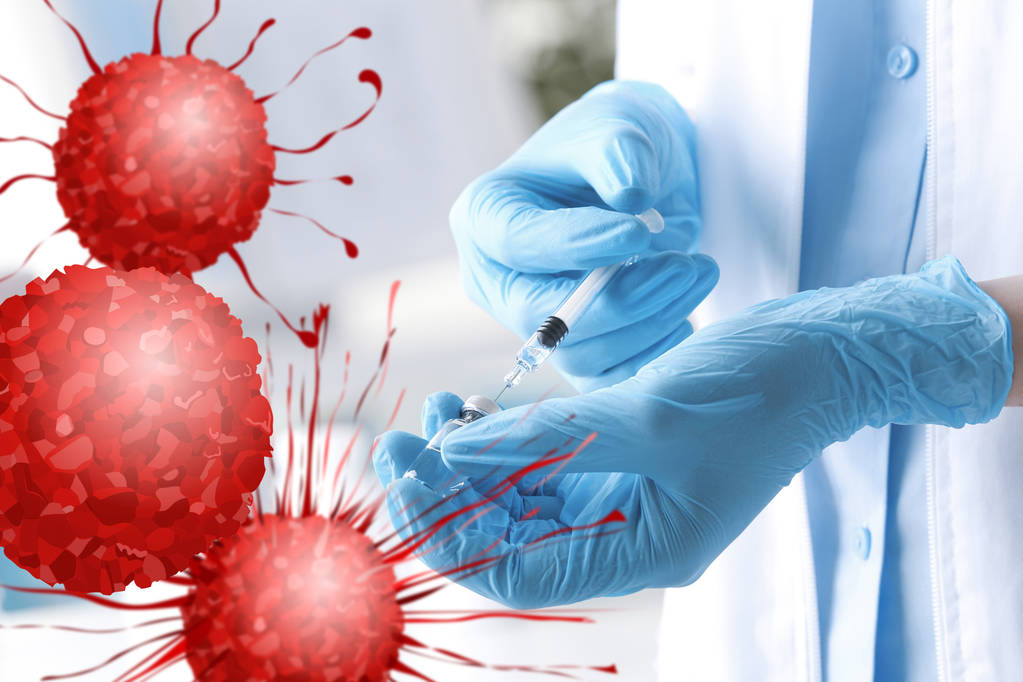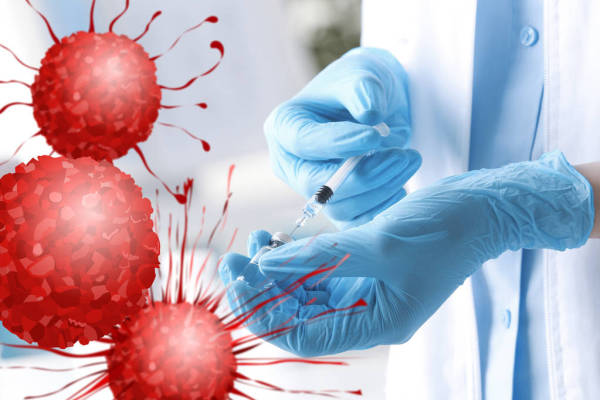
SynsorBio offers One-Stop Solutions of NGS applications to our customers. SynsorBio XS240N and SynplStation 2400+ form an Automated Solution for sample preparation before sequencing. In addition, SynsorBio also provides different Bioinformatics Analysis Systems according to different NGS detection applications.
Hematologic Tumor 521 Genes Mutation Detection Kit
Hematologic Tumor 521 Genes Mutation Detection Kit covers various common blood tumor related genes, including various types of leukemia (AML, ALL, CML, CLL, etc.), myelodysplastic syndrome (MDS), myeloproliferative neoplasm (MPN) and various types of lymphoma (HL, DLBCL, FL, PTCL, etc.), genetic diseases (BMF, HPS, etc.), providing accurate and professional reference information for clinical experts to diagnose and classify blood tumor patients, prognosis evaluation, medication selection, and MRD monitoring.
Gene List :Covering a wide range of genes: Leukemia related genes (268), Lymphoma related genes (196), Genetics related to hereditary hematological diseases (63), Genetic susceptibility related genes in hematological tumors (22), Drug polymorphism related genes (52)
Solid Tumor 808 Genes Mutation Detection Kit
The kit is suitable for qualitative detection of multiple mutations in the 808 genes of formalin fixed paraffin embedded sections (FFPE) from lung cancer, colorectal cancer, melanoma, ovarian cancer and breast cancer. By detecting the gene mutation information of patients, it can meet the clinical expected uses such as tumor targeted drugs and immunotherapy.
Gene List :A single test analyzes 808 genes and provides comprehensive results for substitutions, insertion and deletion alterations (Indels) and copy number alterations (CNAs) and selected gene rearrangements, as well as genomic signatures including microsatellite instability (MSI) and tumor mutational burden (TMB).
Colorectal cancer 34 Genes Mutation Detection Kit
Colorectal cancer (CRC) is the third most common cancer worldwide, and the metastatic disease accounts for 40-50% of newly diagnosed patients. In total, activating KRAS, NRAS, PIK3CA and BRAF mutations occur in 20-50%, 1-6%, 10-30% and 8-15% of c olorectal cancers respectively. Clinical studies have shown the KRAS/NRAS/PIK3-CA/BRAF mutation positive colorectal cancer patients have poor response rate to anti-EGFR monoclonal antibodies. High frequency microsatellite instability (MSI - H) has clear guiding significance for prognosis judgment, drug efficacy prediction and Lynch syndrome screening of colorectal cancer patients. Analysis of the mutation status of these genes in patients with colorectal cancer helps to improve the objective response rate of treatment.
Gene List : ABCB1 ABCG2 APC BRAF C8orf34 DPYD EGFR EPCAM ERBB2 ERCC1 ERCC2 FGFR1 GSTP1 HRAS KRAS MET MLH1 MSH2 MSH6 MTHFR NRAS KRAK1 NTRK2 NTRK3 PIK3CA PMS2 POLE PTEN SLC19A1 TP53 UGT1A1 UMPS XPC XRCC1
Lung cancer 16 Genes Mutation Detection Kit
The frequency of mutations in NSCLC for EGFR, HER2, KRAS, NRAS and BRAF genes are respectively 10~35%, 2~4%, 6~25%, 1% and 1~4.9%. Approximately 1~5% of lung adenocarcinoma patients harbor MET e xon 14 skipping mutations, and about 3~7%, 2%, 1%, 0.12%, 0.02%, 0.08% of NSCLC patients have gene fusions in ALK, ROS1, RET, NTRK1, NTRK2, and NTRK3 genes. A large number of clinical studies showed that gene alteration status is important efficacy predictor for targeted therapy. It is indicated in NCCN Guideline for NSCLC that multigene mutation testing is required before targeted therapy.
Gene List : ALK BRAF CD274 EGFR ERBB2 KRAS MET NTRK1 NTRK2 NTRK3 PIK3CA POLE PTEN RET ROS1 TP53
BRCA1 and BRCA2 Gene Mutation Detection Kit
BRCA1 and BRCA2 gene are autosomal dominant inheritance tumor suppressor genes, which repair DNA double-strand breaks through the homologous recombination repair (HRR) pathway. BRCA gene mutations lead to functional defects of BRCA proteins, which affect the stability of the genome and cause the occurrence of various cancers. Germline BRCA1/2 mutation associates with higher risk of genetic familial breast cancer, ovarian cancer and pancreatic cancer. In metastatic castration-resistant prostate cancer (mCRPC), about 50% of BRCA1/2 gene mutations are germline mutations. Patients with BRCA1 and BRCA2 mutant could benefit from PARP inhibitor.
Gene List : BRCA1 BRCA2
Human 19 HRR Gene Mutation Detection (Tissue)
Hnmologous recombination repair (HRR) is the preferred method for repairing DNA double strand break (DSB). Homologous recombination deficiency (HRD) usually refers to HRR dysfunction at the cellular level,which can be caused by mutations of HRR-related genes(BRCA1,BRCA2,ATM,BARD1,BRIPI,CDK12,CHEK1,CHEK2,FACL,PALB2,RAD51B,RAD51C,RAD51D and RAD54L). HRR gene mutations may also have guiding value for the clinical use of PARP inhibitors and platinum drugs in ovarian cancer, breast cancer, pancreatic ductal cancer, prostate cancer and other tumors.
Gene List : ATM BARD1 BRCA1 BRCA2 BRIP1 CDK12 CHEK1 CHEK2 FANCL PALB2 RAD51B RAD51C RAD51D RAD54L FANCA PTEN MLH1 TP53 RB1





